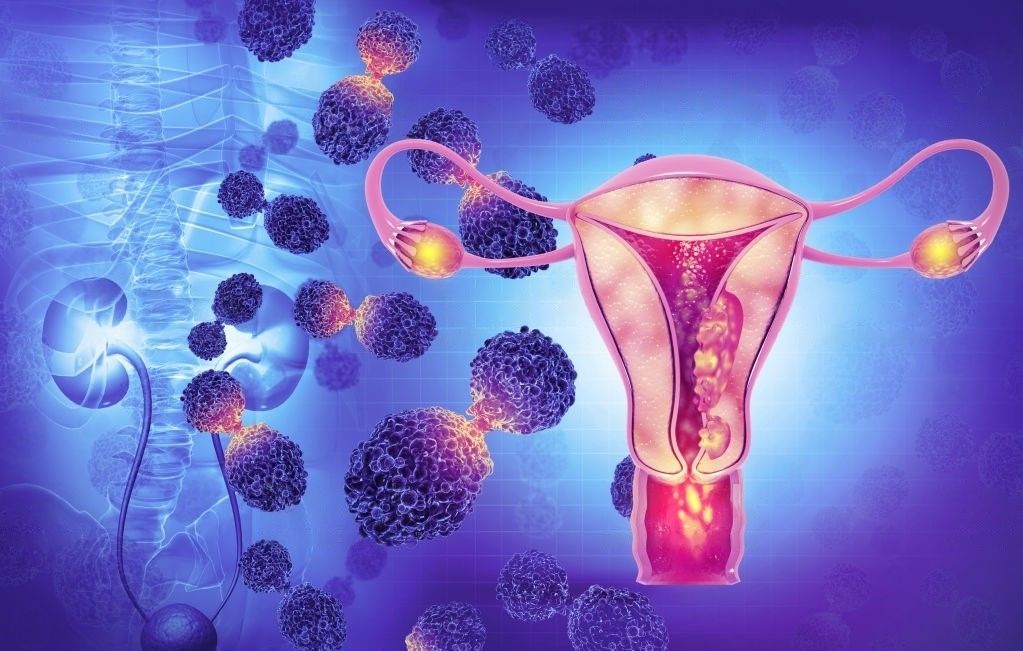Understanding Endometriosis: The Role of Diet in Managing Symptoms
Adopting an anti-inflammatory diet, consuming phytoestrogen-rich foods, and limiting caffeine and alcohol intake can ease inflammation, balance hormones, and relieve endometriosis symptoms.

Endometriosis is a chronic condition that affects millions of women worldwide. It occurs when the tissue lining the uterus, called the endometrium, grows outside the uterus. This condition can cause severe pelvic pain, heavy menstrual bleeding, and infertility. While there is no cure for endometriosis, there are various treatment options available, including medications, hormonal therapies, and surgery. In addition to medical interventions, emerging research suggests that diet can play a significant role in managing endometriosis symptoms. In this article, we will explore the scientific research surrounding the connection between diet and endometriosis, and provide practical dietary recommendations to help manage symptoms and improve quality of life.
The Impact of Diet on Endometriosis Symptoms
1.Inflammation: Endometriosis is associated with chronic inflammation in the body. Certain foods can either promote or reduce inflammation. A diet high in anti-inflammatory foods may help alleviate symptoms. On the other hand, foods that promote inflammation, such as processed foods and those high in saturated fats, may worsen symptoms.
2. Hormonal Balance: Endometriosis is an estrogen-dependent condition, meaning that estrogen levels play a role in its development and progression. Certain dietary factors can influence hormone levels, including phytoestrogens found in plant-based foods. Balancing hormones through diet may help manage symptoms.
Recommended Dietary Approaches for Endometriosis
1.Anti-inflammatory Diet:
- Increase intake of fruits and vegetables: These foods are rich in antioxidants and anti-inflammatory compounds that may help reduce inflammation in the body.
- Choose whole grains: Whole grains are higher in fiber and provide important nutrients that support overall health and reduce inflammation.
- Include healthy fats: Opt for sources of healthy fats like avocados, nuts, and seeds, which contain anti-inflammatory properties.
- Limit processed foods: Processed foods often contain additives and unhealthy fats that can promote inflammation. Minimize consumption of processed snacks, fried foods, and sugary treats.
2. Phytoestrogen-Rich Foods:
- Incorporate legumes: Legumes like lentils, chickpeas, and beans are good sources of plant-based protein and contain phytoestrogens that may help balance estrogen levels.
- Consume soy products: Soybeans and soy products, such as tofu and tempeh, are rich in phytoestrogens called isoflavones. These compounds have been associated with a reduction in endometriosis symptoms.
3. Omega-3 Fatty Acids:
- Include fatty fish: Fatty fish like salmon, mackerel, and sardines are rich in omega-3 fatty acids, which have anti-inflammatory properties and may help manage endometriosis-related pain.
- Add flaxseeds and chia seeds: These seeds are plant-based sources of omega-3 fatty acids. Ground flaxseeds and chia seeds can be added to smoothies, yogurt, or baked goods.
4. Reduce Trigger Foods:
- Limit caffeine: Caffeine can exacerbate symptoms of endometriosis, such as pain and inflammation. Reduce or eliminate caffeine-containing beverages like coffee and tea.
- Decrease alcohol consumption: Alcohol can contribute to inflammation and hormonal imbalance. Limiting alcohol intake may help manage symptoms.
- Consider gluten and dairy: Some women with endometriosis find that reducing or eliminating gluten and dairy products from their diet helps alleviate symptoms. However, more research is needed to determine the effectiveness of this approach.
SUMMARY
While diet alone cannot cure endometriosis, making certain dietary adjustments can play a role in managing symptoms and improving overall well-being. Following an anti-inflammatory diet, incorporating phytoestrogen-rich foods, including sources of omega-3 fatty acids, and reducing trigger foods like caffeine and alcohol may help alleviate inflammation, balance hormones, and reduce endometriosis symptoms.
It is important to note that each individual's experience with endometriosis is unique, and what works for one person may not work for another. Consulting with a healthcare professional or registered dietitian is recommended to develop a personalized dietary plan that suits individual needs and preferences.
Jayti Shah is a Clinical Nutritionist with a master's degree in Clinical Nutrition and Dietetics. She is a member of the Indian Dietetic Association (IDA). Over the last 9 years, she has helped 400 clients in their clinical and weight loss journeys. She works with SocialBoat as a nutrition consultant.
At SocialBoat, we offer custom diet plans and guided workouts to help you achieve your goals in a 360-degree approach. Our gamified experience ensures that you don’t find workouts boring and we reward you for being consistent with your efforts.

REFERENCES
- Cusido M, Alves MG, Cavaco JE, Oliveira PF. Are we what we eat? The impact of food in endometriosis development and progression: A systematic review of the literature. J Endometr Pelvic Pain Disord. 2017;9(3):157-164.
- Reddy BS, Tokumo K, Yamamoto K, et al. Effect of dietary components on biomarkers of inflammation and oxidative stress in an experimental model of colon carcinogenesis. J Nutr Biochem. 2000;11(7-8):408-414.
- Marziali M, Venza M, Lazzaro S, et al. Gluten-free diet: A new strategy for management of painful endometriosis related symptoms? Minerva Chir. 2012;67(6):499-504.
- Silva AB, Gonçalves LG, Dos Reis FM, et al. Influence of isoflavones on reproductive health in humans: A review. Int J Mol Sci. 2019;20(8):1839.
- Chiu YH, Horn-Ross PL, John EM, et al. Dietary factors and risk of endometriosis by histologic subtype: A case-control study. Am J Obstet Gynecol. 2007;196(4):386.e1-386.e10.
- Wijayaratne CN, Nirantharakumar K, Balen AH, et al. Menstrual cycle length and the risk of diabetes in young women. Diabetologia. 2016;59(1):61-69.
- Stagnaro-Green A, Abalovich M, Alexander E, et al. Guidelines of the American Thyroid Association for the diagnosis and management of thyroid disease during pregnancy and postpartum. Thyroid. 2011;21(10):1081-1125.
- Hansen SO, Knudsen UB. Endometriosis, dysmenorrhoea and diet. Eur J Obstet Gynecol Reprod Biol. 2013;169(2):162-171.
